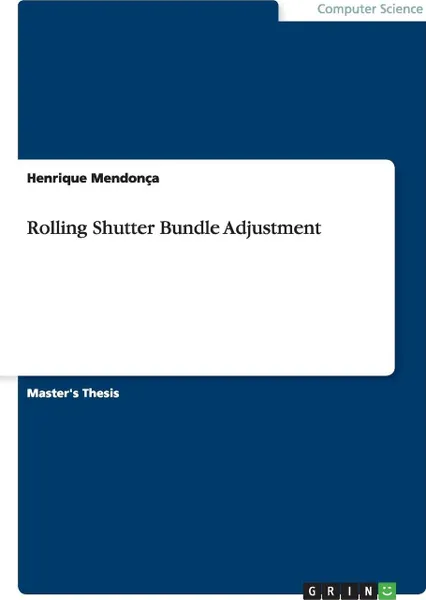Rolling Shutter Bundle Adjustment 12+
Автор: Henrique Mendonça
2015
62 страницы
Категория: Компьютерные технологии
ISBN: 9783668020788
Язык: Английский
📒 Master's Thesis from the year 2014 in the subject Computer Science - Miscellaneous, grade: 5.5, University of Zurich (Department of Informatics), course: Computer Vision, language: English, abstract: Rolling shutter cameras are present in virtually every mobile device nowadays and even on high-end cameras. Their line-by-line readout of the image sensors, greatly weakens the assumption of instantaneous exposure made by most computer vision algorithms until recent years. Even short exposure rolling shutter images and videos can exhibit considerable visual distortion when acquired in presence of motion, either from the camera itself or from the scene objects. Traditional structure from motion pipelines have been proven to fail under these conditions, notably in its typical refining step, the bundle adjustment.Even after over 50 years of research, bundle adjustment is still the state of the art technique for simultaneous optimal estimation of camera poses and scene 3D structure. It has demonstrated its flexibility and robustness over many different kinds of visual models. Nevertheless, handling the extra freedom of the rolling shutter imagery in presence of diverse levels of noise and outliers can be extremely challenging. In this work, we present a very simple and general linear camera model that allows rolling shutters but, at the same time, constrains it to an usable parametrization. We further investigate the amount of information necessary for each level of noise and pro...
Мнения
